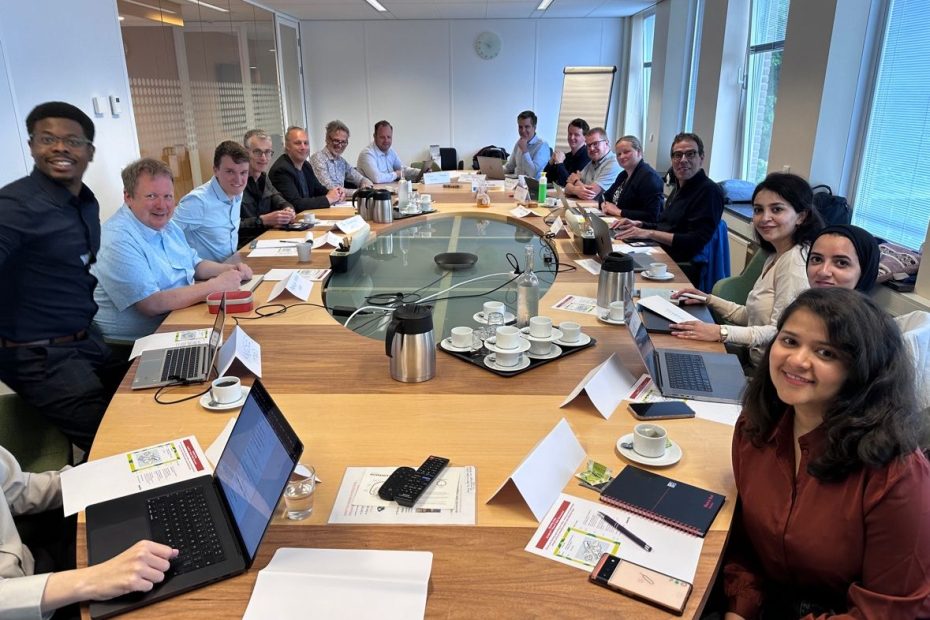By Jyotsna Singh, Yuxing Cheng, Azarakhsh Salem, Nourhan Shokry and Lobke Zandstra
On Wednesday, May 29th, MRDH through the XCARCITY Programme organized a round table on mobility hubs in Rotterdam. About 20 people from the XCARCITY consortium, including 4 researchers and representatives from 10 partner organizations, gathered to discuss the challenges and opportunities surrounding mobility hubs.
The event was structured into three themes, each addressing critical aspects of mobility hubs:
Theme 1: Requirements (KPIs) for a Successful Mobility Hub
The discussion began with defining the key performance indicators for successful mobility hubs. Attendees highlighted the importance of strategic locations, such as proximity to public transport stops or car parks, and the need for multiple mode options like shared cars and bikes. Accessibility, safety, and competitive pricing were deemed essential to enhance utilization and user satisfaction. Participants debated whether hubs should be public or private, and emphasized the importance of identifying different population groups and their specific needs.
Theme 2: Requirements for a Sustainable Mobility Hub
The focus then shifted to sustainability. The materials used for building hubs, and the modes they cater to, should be sustainable. Financial planning for investment, maintenance, and operation was underscored. The governance of hubs remains a complex issue, with questions about funding, profit sharing, and operational responsibilities needing answers. Stakeholder involvement, especially from the government in both infrastructure planning and promotion, was considered crucial. Long-term sustainability, adaptability, and cooperation between different hubs were also discussed.
Theme 3: Research Questions for Successful Mobility Hub Implementation
The final theme revolved around identifying research questions to ensure the successful implementation of mobility hubs. The role of sensors in understanding travel behavior and improving model accuracy was highlighted. Participants discussed the need for criteria to measure the success and failure of hubs, and the importance of case studies on past successful implementations. Several pertinent research questions were raised:
- What interventions and policies are required from the government to make mobility hubs successful?
- How should the supply of vehicles in hubs be determined based on demand and user behavior?
- Which spatial variables influence the success or failure of mobility hubs?
- What special policies are needed to cater to different population groups, ensuring service levels and quality?
- How should parking spots be allocated in the context of mobility transitions?
The session concluded with discussions on future research directions and the need for similar discussions annually. It was suggested that ministries be included in future consortium meetings to broaden the scope of these discussions.
The round table resulted in valuable insights, strong connections among partners, and the identification of critical research questions. We hope some of these questions can be answered through the XCARCITY program. If you wish to stay informed about this topic or can help answer any of the research questions, please let us know!
Watch this space for updates on the event’s results and future XCARCITY round table discussions. You can read the full report here.

